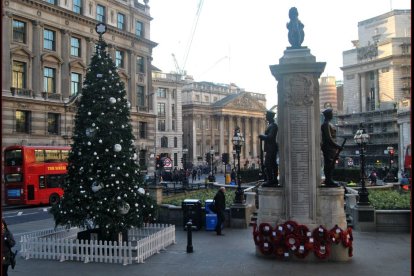UK calls for Christmas to be referred to as "festive celebrations" so as not to discriminate against other faiths
In addition, government officials prohibited workers from consuming alcohol if someone on the team does not do so because of their faith.

(Flickr)
British civil servants will not experience Christmas. They will be "festive celebrations" to promote non-discrimination and inclusion of people of other faiths, according to government officials. In addition, the consumption of alcohol has been prohibited if any of the team members does not consume alcohol during the typical lunches or dinners of this holiday season.
Although there are no specific guidelines from the Government, they have published a "kit of Faith and Beliefs" that each manager then interprets and implements as he/she sees fit. According to The Telegraph, the handbook allows for Christmas party celebrations, but those responsible must"think about the venue and take into account that not everyone consumes alcohol."
Uncertainty
The publication of the handbook has created a lot of uncertainty among public employees, and many came to think that all Christmas celebrations would be abolished. "Often, people wonders if it's okay to hold a Christmas party at work if someone on the team doesn't celebrate Christmas, or if it's okay to propose a few drinks after work," lamented one public worker who agreed to chat with The Telegraph. Situations also arose in which personnel managers asked their subordinates to remove a Christmas tree if it offended their Jewish or Muslim colleagues.
This kit has led to situations that several officials denounced to the English newspaper, in which instead of integrating, the person for whom alcohol was banned ended up being singled out. Another staff member noted that "we are in a situation where, in the name of inclusiveness, one staff member is allowed to dictate what other staff members may or may not drink. Of course, no one should be expected to drink alcohol at work events, and there should always be the option of non-alcoholic beverages for those who are unwilling or unable to do so. But it seems a step too far to say that no one can drink alcohol because of a staff member's beliefs."
RECOMMENDATION





















